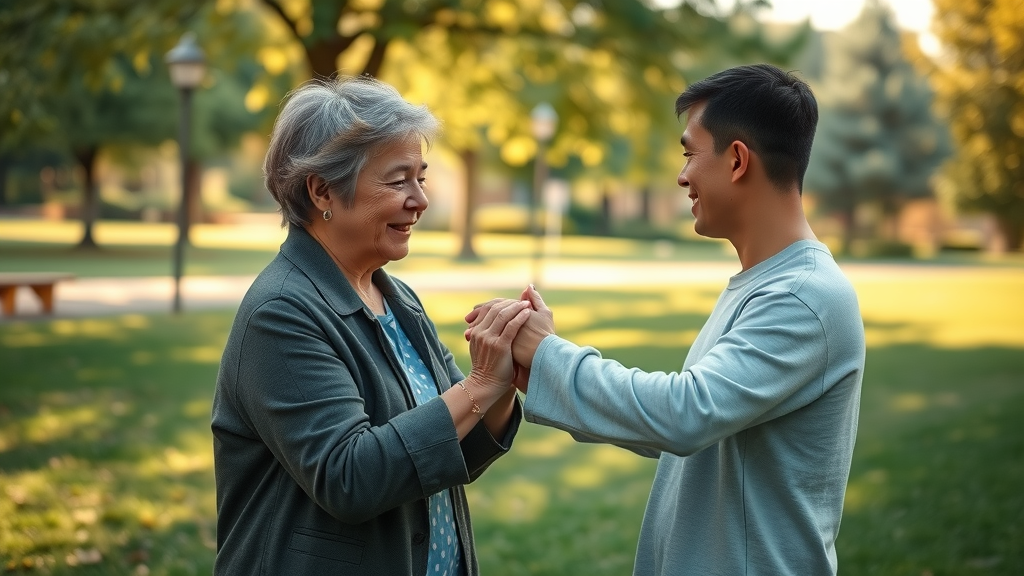How often do you pause to consider the ripple effect of a single act of kindness?
Delve into the realm of behavioral science kindness to uncover why kindness wields transformative power, enhancing not just personal well-being, but also societal harmony.
Why does kindness matter more than ever in today's world?
Understanding the Ripple Effect of Kindness
The concept of kindness is surprisingly complex. While it may seem like a simple gesture, research in behavioral science reveals that kindness creates a ripple effect, influencing the mental health and happiness of both the giver and the receiver.
Kind acts, regardless of their size, can significantly affect the well-being of individuals and communities.
The Science Behind Kindness and Mental Health
Studies in behavioral science show that engaging in kind behaviors can lead to increased happiness and reduced levels of depression and anxiety.
According to research, when we perform acts of kindness, our brain releases feel-good hormones like oxytocin and endorphins that promote emotional well-being. These chemicals not only enhance our mood but also improve our overall mental health.
How Kindness Enhances Personal Well-Being
Engaging in behavioral science kindness can help cultivate a sense of purpose and meaning in one's life. Kindness can create feelings of social connection and belonging, two essential components of human happiness.
A study published by the Journal of Happiness Studies found that individuals who engage regularly in acts of kindness report greater life satisfaction. For more on fostering personal happiness, explore how to foster your authentic self for greater happiness .

"Kindness doesn't just benefit the person we're kind to; it has a positive impact on our own physical and mental wellbeing."
— Jaime Thurston, Chief Executive of the School of Kindness
When you're kind to someone, it's like giving a gift that you both get to enjoy. Not only does the other person feel good, but you also feel happier and healthier.
It's a win-win situation where everyone benefits from a simple act of kindness.
Acts of Kindness: Small Gestures, Big Impact
When we think of kindness, we often think of grand gestures. However, studies show that small acts of kindness can have equally significant impacts. A simple smile or compliment can lighten someone's day while enhancing our own mood.
Everyday Acts of Kindness
-
Holding the door open for someone
-
Offering a compliment to a stranger
-
Helping a neighbor with groceries
These small gestures, which require minimal effort, can create a positive feedback loop in our communities. Each small act encourages others to pay it forward, generating a cascade of kindness that spreads throughout society.
The Long-Term Benefits of Kindness
Engaging in regular acts of kindness fosters long-term emotional benefits. Behavioral science indicates that those who develop a habit of kindness feel greater life satisfaction and less stress.
This habit is not just about feeling good temporarily; it leads to lasting impacts on mental health, including decreased levels of anxiety and a greater sense of fulfillment in life. To further enhance your well-being, consider making exercise less boring with engaging strategies .

“Kindness can positively change your brain by boosting levels of serotonin and dopamine.”
— Mayo Clinic Health System
Being kind isn't just good for others; it's good for you too. It helps your brain release chemicals that make you feel happy and calm. So, kindness is like a natural mood booster!
The Role of Kindness in Positive Psychology
At the intersection of kindness and positive psychology lies the fundamental idea that our well-being is deeply interwoven with our social environments.
How Kindness Fosters Community and Connection
Kindness plays a pivotal role in building community. When individuals engage in kind acts, they not only uplift those around them but also strengthen the bonds that connect the community. These connections contribute to a supportive network that promotes wellness and resilience.
The Psychological Benefits of Giving
Giving—whether it’s time, resources, or a helping hand—has been proven to bring joy and contentment. Behavioral science elucidates that the act of giving can fulfill our innate needs for connection and purpose.
Nick Epley, a professor of Behavioral Science, explains, 'Kindness connects us with others and satisfies our basic psychological needs.'

"Kindness is the language which the deaf can hear and the blind can see."
— Mark Twain
This quote means that kindness doesn't need words or sight to be understood. A kind act, like helping someone or offering a smile, can be felt deeply by anyone, no matter their abilities. Kindness speaks directly to the heart.
Expert Insights on Kindness and Behavioral Science
Experts in behavioral science emphasize the importance of kindness in fostering emotional resilience and community engagement. Understanding the mechanisms behind kindness can help us cultivate these qualities in our own lives.
The Importance of Self-Determination in Kindness
Self-determination theory posits that individuals are motivated from within to connect and contribute positively.
When we choose to act kindly, we satisfy our need for relatedness, competence, and autonomy. This intrinsic motivation makes kindness more meaningful and sustainable.
Overcoming Barriers to Kindness
Despite its benefits, many individuals encounter barriers that prevent them from being kind. Time, fear of vulnerability, and misconceptions can hold us back.
By recognizing and challenging these barriers, we can foster an environment where kindness thrives. For insights on overcoming personal challenges, read about postpartum health issues and personal struggles .

"Kindness is more than deeds. It is an attitude, an expression, a look, a touch. It is anything that lifts another person."
— Plato
Kindness isn't just about big actions; it's also in the small things. A friendly smile, a gentle touch, or a kind word can brighten someone's day. It's about being thoughtful and caring in everyday moments.
Common Misconceptions About Kindness
Even though kindness is universally valued, several misconceptions can distort our understanding of its role and efficiency in our lives.
Underestimating the Impact of Small Acts
A common misconception is that only large, grand gestures constitute kindness. However, small acts can be equally powerful, often leading to significant changes in someone's life. Behavioral science research reveals that the positive effects of kind actions extend far beyond immediate responses.
The Miscalibration of Kindness Expectations
People often underestimate the positive emotional impact that their kind actions can have on others. The act of giving is more meaningful than the material value, and individuals often gain more joy from giving than they expect.
Practical Tips for Cultivating Kindness
Building a more generous and kind society starts with individual actions. Simple modifications in daily routines can foster a culture that celebrates kindness.
Incorporating Kindness into Daily Life
Finding ways to express kindness daily can transform our social interactions. Whether it’s through volunteering, writing a note of appreciation, or lending a listening ear, these small acts make a world of difference.
Creating a Kindness Habit
-
Start small: Begin with one act of kindness a day.
-
Set reminders: Use your phone to prompt you to be kind.
-
Reflect on your kindness: Keep a journal of your kind acts and their impacts.

People Also Ask
What is the Science behind kindness?
The science behind kindness reveals its positive effects on mental health, widespread community benefits, and its ability to fulfill our psychological needs.
What is the psychology behind kindness?
Kindness satisfies essential psychological needs for relatedness, competence, and autonomy, which enhances personal well-being.
What is the Science behind loving kindness?
Loving kindness promotes emotional resilience, cultivates positivity in relationships, and strengthens communities through mutual support.
What are the 4 types of kindness?
-
Self-kindness
-
Interpersonal kindness
-
Compassionate kindness
-
Community kindness
Conclusion: The Transformative Power of Kindness
Kindness is more than just an act; it embodies a fundamental aspect of the human experience. As highlighted by Nick Epley, 'When we engage in acts of kindness, we not only uplift others but also enrich our own lives.' The ripple effects of kindness can foster connections, enhance mental health, and promote societal harmony.
Call to Action
Start Your Kindness Journey Today!
Let’s create a more compassionate world together! Start your kindness journey today by committing to one act of kindness. Every small gesture can lead to monumental changes.
 Add Row
Add Row  Add
Add 




 Add Row
Add Row  Add
Add
Write A Comment